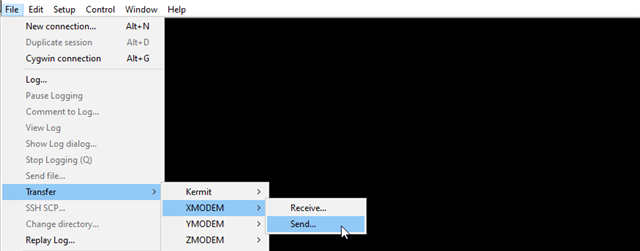Part Number: SK-AM62
Other Parts Discussed in Thread: UNIFLASH
I have been following the AM62x MCU+ SDK: EVM Setup (ti.com) step by step, and have run into an issue when attempting to flash the SOC initialization binary. After running the command to flash the SK-AM62 board, the following errors are encountered:
Despite the errors above, I am receiving a "healthy" stream of "C" chars in the CCS terminal using the same COM port connection (yes I am closing that connection as instructed before flashing). Note I am using a Windows 10 PC, and have completed the pre-requisite CCS and environment setup per the Getting Started Guide. I have also been able to boot the board using a Debian or Yocto SD card image with no issues. Really not sure where to go from here as my software install and hardware seems ok, yet here I am. Appreciate any insight.


